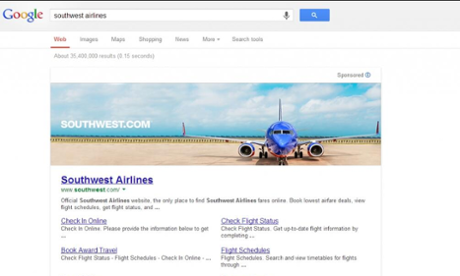Broken promises

In a previous post I commented on research which seemed to suggest that consumers weren’t always acting honestly when they provided personal data to companies. Well, there’s news today of the other side of that general coin.
When Google started it had a very neat proposition and a very clear position. A very clean, simple interface which presented the results of your search quickly and without obtrusive adverts getting in the way, and without advertisers, or anyone else for that matter, being able to distort those search results to their advantage. And a position in opposition to be corporate IT giants of the world such as Microsoft, Apple, IBM and similar, encapsulated in the informal corporate slogan “Don’t be evil” (often mis-quoted as “Do No Evil”)
That focus on the user, and the user experience, coupled with impressive innovation and technical skills, has propelled Google to its present position of pre-eminence. But now Google is a company listed on the US Stock Exchange, with the share price at over $1000, and a keen focus on making money to keep those shareholders happy. And it turns out that the way they think they can do that involves retreating from that initial proposition and positioning. The technical press is reporting that Google have begun testing the display of banner adverts at the head of search results listings.
This seems to be a clear case of breaking a promise. Writing in December 2005 Marissa Mayer, then Google’s head of search and user experience, now at Yahoo.com, insisted that:
“There will be no banner ads on the Google homepage or web search results pages. There will not be crazy, flashy, graphical doodads flying and popping up all over the Google site. Ever.”
Asked why Google had now gone back on that clear promise, Google said in a statement that: “We’re currently running a very limited, US-only test, in which advertisers can include an image as part of the search ads that show in response to certain branded queries.” Clearly that’s a statement that comes straight out of Google’s PR Department, and simply doesn’t answer the question, which wasn’t “what are you doing?” but “why are you doing it?”
The Guardian, reporting this story, showed a screen dump from the test:

Wow! Where did the search results go? And any listings from competing advertisers (One of the nice but unremarked features of search-driven advertising is that although you get adverts, you get adverts from multiple advertisers, which helps you in the process of discovering what’s on offer and comparing those offers)?
Clearly, this is only a test (and if media reaction is anything to go by, Google may decide that the negative publicity and reputational damage they would sustain by introducing banner ads wouldn’t be worth the extra ad revenue) but it raises a bigger issue which seems to be a common feature of user-supplier agreements. At the beginning of the relationship the supplier makes an offer, the user considers it and decides that the proposed deal is fair and reasonable. They sign up and everybody is happy. But, when the user has invested time and effort in getting to know the supplier’s system, has possibly spent time and effort personalising the system and populating it with data, and has established regular habits of use, then the supplier changes the terms of the deal, and often does so in quite radical ways.
To be meaningful and enduring, contracts have to be two-way, and cannot be modified unilaterally. Unfortunately, the experience of customers is that companies often feel that they can, and do, unilaterally go back on promises made. Maybe this is part of the explanation of why 50% of users falsify the information they give to companies? As the Lions’ rugby coach instructed his players on an infamous tour of South Africa some years ago “Make sure you get your retaliation in first”.








